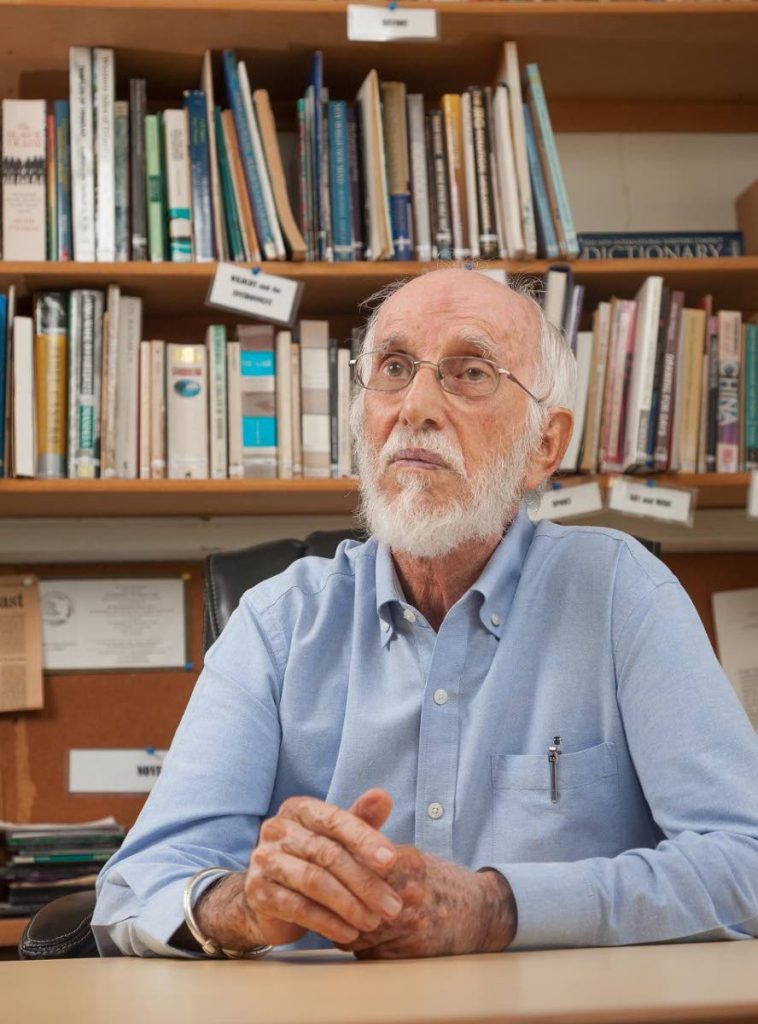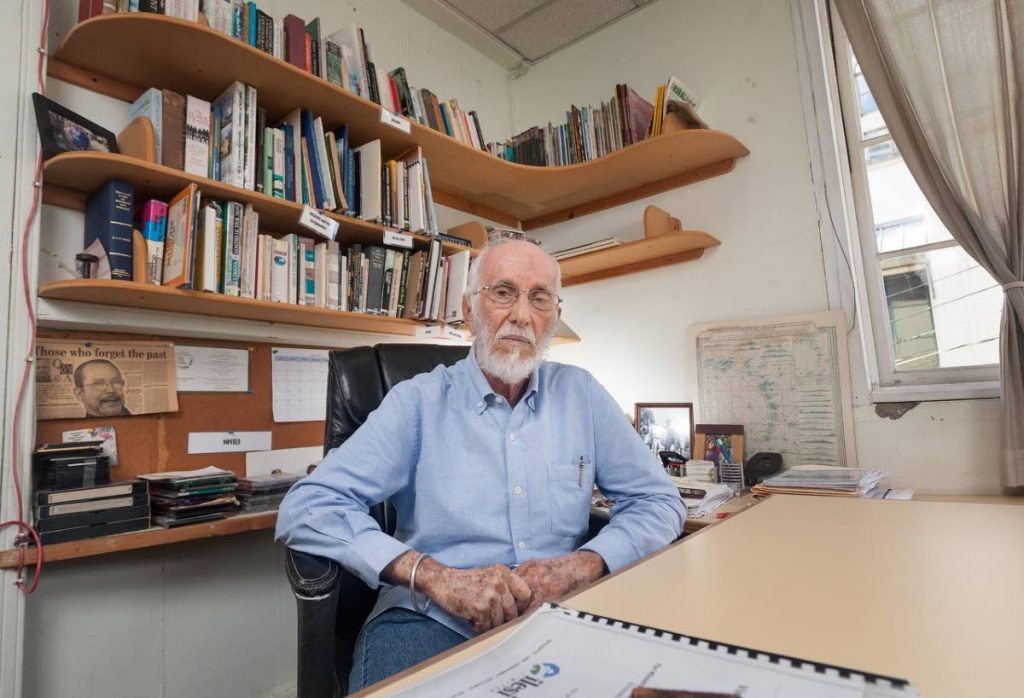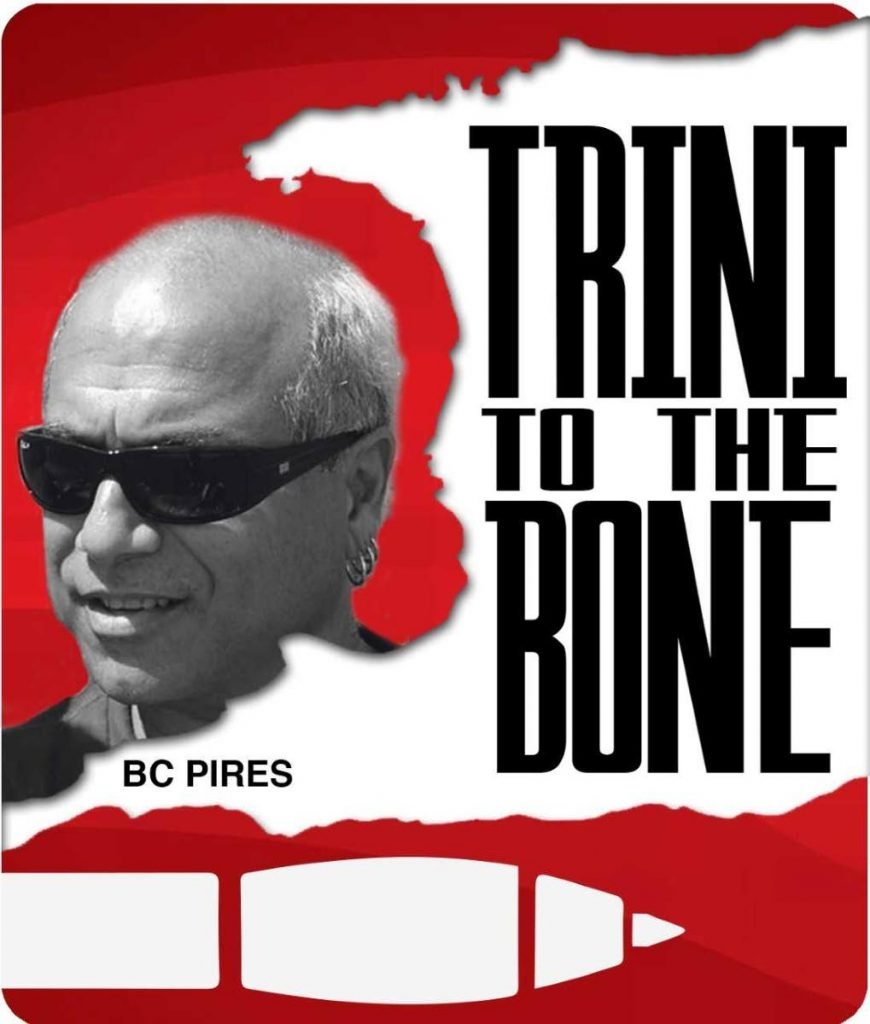Voices in the land

My name is Ivan Laughlin and, although I am Trini to the bone, I am Caribbean in the marrow.
I’m a war baby, born 15 January 1942. Muhammad Ali is the 17th.
When they were sprinkling (greatness) they passed me and touched him first.
As a five-year-old, I used to walk from Long Circular Road to the Savannah, take the tram to City Gate, pick up two packs of nuts and go back. Or take the bus down Long Circular Road to Cipriani Blvd, where Miss Eccles’ school was, and go back by bus – all by myself, at age five.
My parents split up when I was about seven. My mum took us to live with my grandmother, Evelyn Anderson, on the Maracas Estate.
The move from the urban to the rural had a striking impact on me.
The Abbey School principal, Fr Isle de France, taught us how to draw maps as rectangles.
Chupara Point is the most northerly point of Trinidad. You trace it to
Galeota, then down to Galera – you frame Trinidad and you suddenly
understand where Icacos was, San Fernando and so on.
He did the same thing with Barbados, Jamaica, Guyana. All of a sudden, I’m seeing the Demerara and Essequibo Rivers, Suriname, Brazil, Venezuela. I learned the Cockpit Country in Jamaica and all of the Caribbean that way.
The land became the centre of my understanding.
When people ask my religion, I say I am a wanderer – because I wander the land. And when I wander the land and hear the birds and feel the breeze, I start to wonder.
That’s my religion.
West Indies cricketer Lance Murray was a land surveyor. After cricket training one day, he said, “Laughlin, what you planning to do?”
I had just finished O-Levels. I couldn’t do A-Levels because my mother and father had split up and, in those days, there was no free secondary education.
He said, “Come and do land surveying with me.”
So that’s what I did.

- Mark Lyndersay
Aged 17, I went to work in the government service as an apprentice land surveyor at $3.50 a day.
I was actually like a labourer.
In 1966 (after much simi-dimi, I got world-famous intellectual) CLR James, who was a Workers & Farmers Party general election candidate, to speak to (me and my student friends).
I was 23 and completely overwhelmed. Imagine me chairing a meeting at which CLR James spoke!
It was after midnight when we got back to (his digs). We sat in the car and spoke for two hours. He said, “Ivan, tomorrow morning, I’m going to lie in my bed late and contemplate the veracities of life!”
Those were his final words to me. Here he was, a philosopher of the highest order, talking to a boy in his early 20s.
I was thinking of going to Canada to extend my studies when (New World Group member and Tapia House Movement leader) Lloyd Best said, “No, no, no, man. UWI is the place to learn what you have to do.”
And, so help me God, that’s what I did.
(Guyanese writer) Wilson Harris, for me, was (a hero), because he was a land surveyor!
He saw the mysticism of the land in Guyana. Palace of the Peacock (shows what) a remarkable thinker he was.
In Tobago, I passed Englishman’s Bay and got up on to the ridge
overlooking Parlatuvier. When I looked down from there, I thought I was in the Garden of Eden.
My perspective is, how you shape the land, is how you shape the
civilisation. The land tells you what to do.
We don’t need mega-projects; we just have to listen to the voices of the land.
A week after signing a three-week contract to look at land issues in Belize, on Independence Day, 1994, I fell off the side of a cliff. Cracked my skull.
Broke my leg in two places.
They gave me three hours to live. They had to take off part of the skull and sew a burst vein in the brain.
Dr Mahadeo told me I wouldn’t be able to work for nine months.
I said, “I’m flat broke, I got to work.”
He said, “Okay, go and work for three hours and rest for two. No more than that.”
I worked ten hours a day for three weeks and travelled from Belize to Guatemala and Mexico.
Then I went to do the same thing in Turks & Caicos.
After six weeks, I came back to the doctor. He said, “But Ivan, you’re in great health! What happened?”
I told him, “Hard work!”
I’ve been a vegetarian for 40 years.
(National Alliance for Reconstruction Prime Minister ANR) Robinson (appointed) me chairman of the National Housing Authority, where I developed the sou-sou land approach.
My Sou-Sou Land Story was selected by the United Nations as one of the ten finest human settlement issues for low-income people. We won an award.
I wrote it myself and gave it to the company.
Russia had invaded Afghanistan and 0.25 million refugees came through the Khyber Pass and they had to redo the city of Peshawar to accommodate them.
They selected six people from all over the world to give their views on it – and I was one.
When the volcano erupted in Montserrat, the British government had to send a contingent to look at Plymouth, the capital, and 20 per cent of the island being devastated. I was recommended.
I designed two settlements for the refugees who were living in school classrooms.
In 2004, Hurricane Ivan hit Grenada and USAID (asked me) to look at how they could deal with family land (issues, so that) people could collect the aid they wanted to provide.
The female immigration officer at the airport looked at my passport. “Your name is Ivan?”
I nodded.
She said, “Why you coming back to Grenada? We now trying to deal with you!”
I dealt with disaster issues in different circumstances in the world and
(relied on) the things I learned from Sou-Sou Lands and Tapia.
The way I utilised that is the way we could shape the world.
Trinidad has the best possibility of signalling to the world how to cope with that – but the political institutions have failed us from that standpoint.
That is why I get depressed. (Because) I see what is possible.
A Trini is someone who understands and loves the land.
To me, Trinidad and Tobago means this land of ours.
Read the full version of this feature on Wednesday at www.BCPires.com


Comments
"Voices in the land"